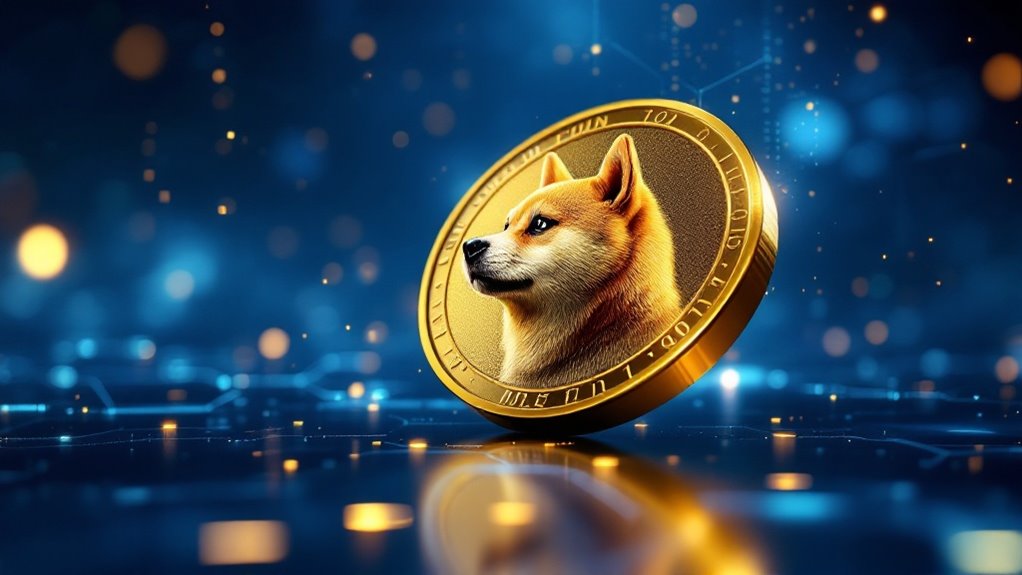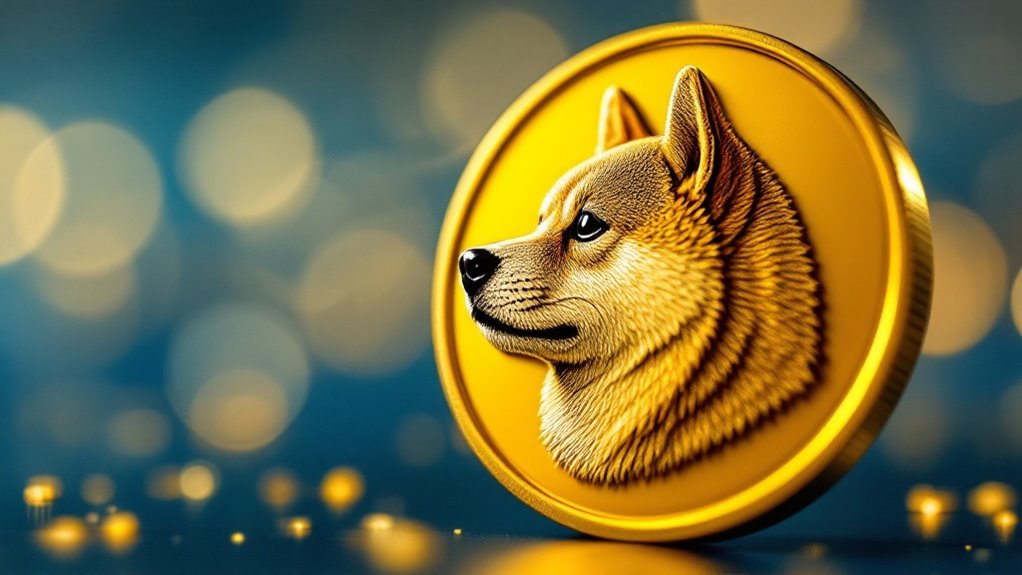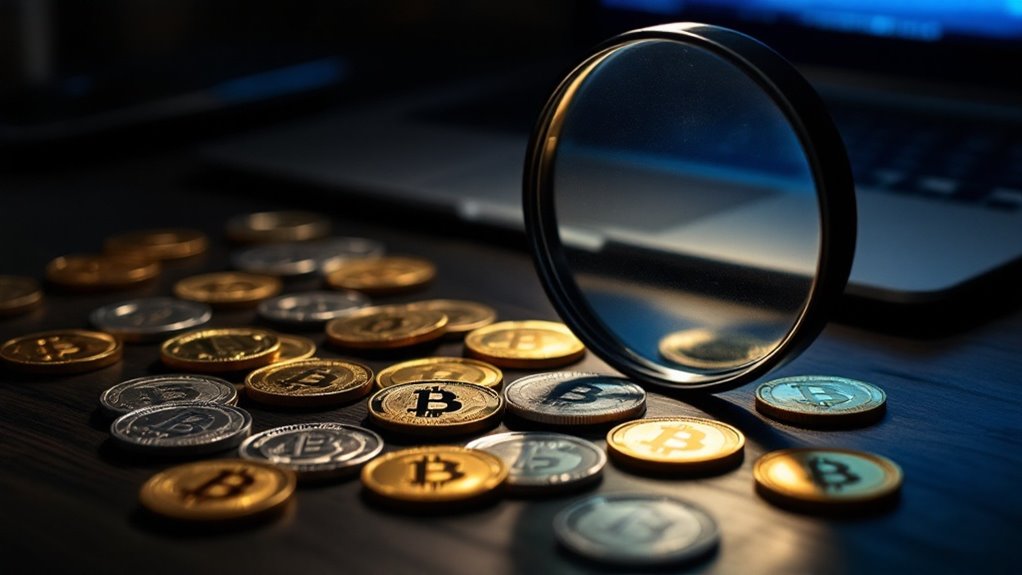Dogecoin emerged in 2013 as a playful parody of Bitcoin, featuring the beloved Shiba Inu "Doge" meme as its mascot. What started as a joke quickly evolved into a legitimate cryptocurrency with real-world applications, processing transactions faster than Bitcoin and garnering support from notable figures like Elon Musk. The coin's infinite supply and community-driven spirit make it uniquely accessible for everyday transactions. Behind its lighthearted exterior lies a sophisticated blockchain technology with untapped potential.

What began as a playful joke in the cryptocurrency world has evolved into a digital phenomenon worth billions. Created in 2013 by software engineers Billy Markus and Jackson Palmer, Dogecoin emerged as a lighthearted satire of Bitcoin, featuring the beloved Shiba Inu "Doge" meme as its mascot. Like a friendly puppy bounding into the serious world of finance, this cryptocurrency quickly captured hearts and wallets, drawing over a million visitors to its website in its first month alone. The coin experienced remarkable growth when it reached peak value of sixty-nine cents in May 2021.
Unlike its stern older sibling Bitcoin, Dogecoin maintains a more relaxed approach to digital currency. While Bitcoin caps its supply at 21 million coins, Dogecoin keeps its doors open, minting 10,000 new coins every minute like a never-ending digital fountain. This infinite supply hasn't dampened its appeal – if anything, it's enhanced its accessibility for everyday transactions and online tipping, making it the people's crypto of choice. The platform now adds 5 billion coins annually to maintain its long-term stability. As a media cryptocurrency, Dogecoin represents a unique blend of entertainment and financial utility in the blockchain space.
Dogecoin's unlimited supply and easy-flowing transactions make it the friendly, accessible alternative to Bitcoin's strict limitations.
The Dogecoin community has proven that cryptocurrency doesn't have to be all suits and spreadsheets. They've rallied behind causes like sponsoring the Jamaican bobsled team's Olympic dreams and have attracted high-profile cheerleaders including Elon Musk and Snoop Dogg. Nearly 2,000 merchants now accept this digital currency, which can even be converted to a prepaid Mastercard through Bitpay.
Behind its playful exterior, Dogecoin boasts serious technological credentials. Built on Litecoin's codebase, it employs the Scrypt algorithm for mining and processes transactions faster than Bitcoin, completing blocks in just one minute. The Dogecoin Core Development team maintains this open-source project, while the Dogecoin Foundation, established in 2014, protects its trademarks and advocates for its growth.
From its modest beginnings as a crypto parody to achieving an $85 billion market cap peak in May 2021, Dogecoin has proven that sometimes the best innovations start with a smile. While traditional investors might raise eyebrows at a currency inspired by a meme, Dogecoin's blend of accessibility, community spirit, and technological capability has earned it a lasting place in the cryptocurrency landscape.
Frequently Asked Questions
Can Dogecoin Be Converted Back to Regular Currency Easily?
Yes, Dogecoin can be readily converted to regular currency through multiple channels including cryptocurrency exchanges, peer-to-peer platforms, ATMs, and payment processors. The process offers 24/7 availability with generally low fees.
What Security Measures Protect My Dogecoin Investments?
Dogecoin investments can be secured through hardware wallets for offline storage, software wallets with encryption, and exchanges offering cold storage. Two-factor authentication, strong passwords, and regular security updates provide additional protection.
How Does Dogecoin Mining Differ From Bitcoin Mining?
Dogecoin mining uses Scrypt algorithm, allowing GPU mining and faster block generation, while Bitcoin uses SHA-256 requiring specialized ASICs. Dogecoin offers fixed rewards and adjustable difficulty, making it more accessible to everyday miners.
Which Countries Have Restrictions or Bans on Dogecoin Trading?
Several countries enforce restrictions on Dogecoin trading. China, Algeria, Egypt, Morocco, and Bangladesh have complete bans, while Turkey, Russia, India, Indonesia, and Namibia maintain partial restrictions on cryptocurrency transactions and trading.
Are There Transaction Fees When Sending Dogecoin Between Wallets?
Yes, Dogecoin transactions incur small fees, typically averaging 0.329 DOGE ($0.063). Fees are based on transaction size, with a default rate of 0.01 DOGE per kilobyte, making transfers relatively inexpensive compared to other cryptocurrencies.









